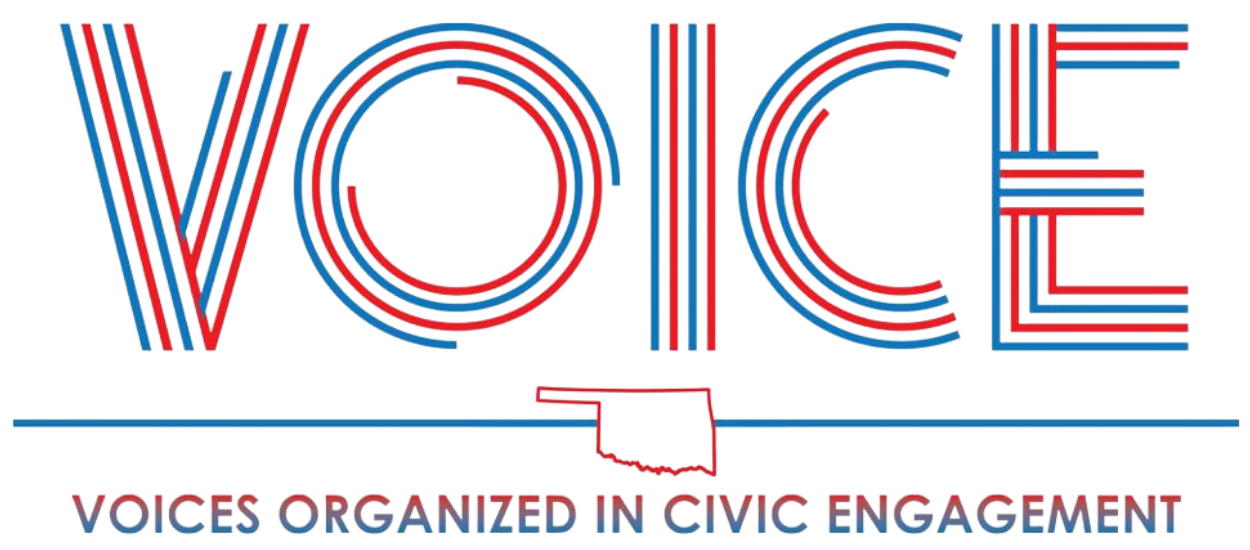VOICE offers shocking stats on criminal justice
[Excerpts]
The Rev. James Dorn’s voice and demeanor conveyed the gravity of the situation faced by our fellow Oklahomans. Facing an overflow crowd at Restorative Justice Sunday on Jan. 24, a guest pastor from Mt. Triumph Baptist Church emphasized how over-incarceration of non-violent inmates should prompt both “anger and hope.”
Our nation’s extreme commitment to punishment has spun so far out of control that we are finally seeing bipartisan agreement by many lawmakers in Oklahoma — and across the country — that our systems must be reformed. By now, voters who look at the facts presented on Restorative Justice Sunday will likely agree with the Rev. Theodis Manning, who said of Oklahoma’s incarceration rate, “Enough is enough.”
A coalition of metro churches, unions, nonprofits and other organizations, VOICE held the community meeting on Restorative Justice at the St. John’s Missionary Baptist Church. Dozens of attendees participated in the program, titled Public Safety at Risk: Fines and Fees and the Oklahoma Criminal Justice System.
VOICE’s mission is developing the leadership skills of its members “to more effectively work within the democratic process with civic leaders and public officials on issues of concern to families.” Clearly, VOICE and its Legislative Action Plan had done its homework before their Sunday event, which laid out a detailed indictment of Oklahoma’s mishandling of our criminal justice system.
The first problem is underfunding of the criminal justice system. Since 2003, Oklahoma’s incarceration rate has increased by 13 percent. During that time, staffing decreased by 19 percent. In addition to increasing hardships on inmates, which makes rehabilitation harder, job training and other rehabilitation services have been slashed. By now, parole officers have caseloads of 100 to 150 inmates per officer.
The VOICE presentation started with an astounding chart documenting the rapid take-off since the early 1990s of Oklahomans incarcerated for what we define as “felonies.” During this period, the incarceration rate for federal felonies has only increased slightly.
By now, more than 8 percent of Oklahomans have a felony record. Many of those offenses would not be defined as a felony in most states and nations, according to presenters. Even worse, the state has a constellation of self-defeating policies that turn a felony record into far more debilitating problems for people trying to get their life back on track. Perhaps the most irrational punishments imposed on nonviolent offenders are the long list of fees and fines they face. It is no secret that Oklahoma’s budget-cutting has forced law enforcement agencies to use fees and fines in order to balance their budgets. But VOICE’s inventory of charges assessed on prisoners is mind boggling.
When a released inmate who could not read or write sought help from his pastor, it was learned that he received an $11,000 bill for his eight months in jail. Perhaps because the charges were impossibly large, the former prisoner soon disappeared. And he was not an exception. . . .
Because there is no centralized record system, released inmates may not know about all of the fees and fines that they owe. This also means that various localities sometimes compete in collecting fines that, once paid, leave former prisoners in debt in other jurisdictions. Even more illogically, counties can increase costs to former prisoners by turning the fees over to collection agencies. The system is so dysfunctional that Oklahoma County only collects about 1 percent of what is billed to former inmates for their stays in the jail, according to VOICE data. So, taxpayers pay the costs of incarcerating prisoners as well as pursuing them further for debts they cannot pay.
Perhaps the most tragic aspect of our system is that Oklahoma continues to fill its jails with more and more mentally ill prisoners. As many as one-third of inmates in county jails are mentally ill or have mental illness problems.
VOICE is monitoring the 2016 legislative session, and it distributed a list of eight pending bills and other related legislative issues — such as Medicaid expansion — and mental health care access. For instance, Rep. George Young (D-OKC) has filed HB 2960 which would implement a game-changing phrase in Oklahoma statutes: “It is the policy of this state that no person shall be incarcerated for debt.”
